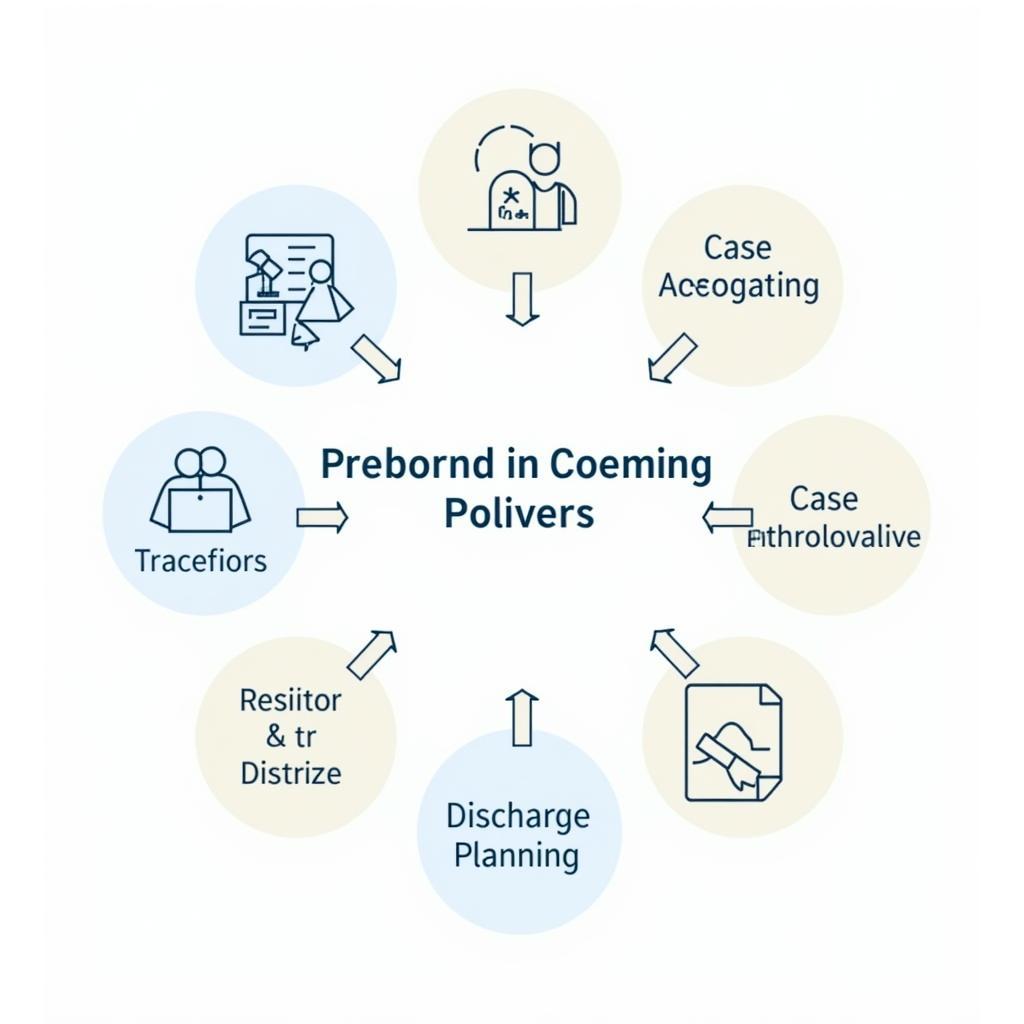How Do Managed Care Organizations Ensure Quality Services?
Managed care organizations (MCOs) play a crucial role in the healthcare system by providing access to affordable and efficient healthcare services. One of the biggest concerns for individuals considering MCOs is the quality of care they provide. After all, balancing cost-effectiveness with high-quality care can be challenging. So, How Do Managed Care Organizations Ensure Quality Services? Let’s delve into the mechanisms MCOs use to maintain and improve the quality of care they offer.
Understanding Quality in Managed Care
Before exploring the “how,” it’s essential to understand what constitutes “quality” in the context of managed care. Quality in healthcare encompasses various aspects, including:
- Effectiveness: Providing care that demonstrably improves health outcomes.
- Safety: Minimizing the risk of harm to patients during treatment.
- Patient-centeredness: Respecting patients’ preferences, needs, and values in care delivery.
- Timeliness: Providing care promptly and reducing wait times.
- Efficiency: Utilizing resources responsibly to maximize value.
- Equity: Ensuring fair and impartial access to healthcare services.
 Quality Healthcare Measures
Quality Healthcare Measures
Key Strategies Employed by MCOs
To meet these quality benchmarks, managed care organizations implement various strategies:
1. Establishing a Robust Provider Network
MCOs meticulously select healthcare providers (doctors, hospitals, specialists) known for their expertise and commitment to quality. They establish a network of contracted providers who agree to provide services at pre-negotiated rates. This network forms the backbone of the MCO’s ability to deliver quality care.
2. Implementing Utilization Management Techniques
MCOs employ utilization management (UM) techniques to ensure that healthcare services are medically necessary and delivered cost-effectively. These techniques involve:
- Prior Authorization: Requiring approval from the MCO before certain procedures, tests, or specialist referrals.
- Case Management: Assigning case managers to patients with complex medical needs to coordinate care and optimize resource utilization.
- Discharge Planning: Facilitating a smooth transition for patients from the hospital to home or other care settings.
 Utilization Management Tools
Utilization Management Tools
3. Emphasizing Preventive Care and Wellness Programs
MCOs recognize that preventing illness is more cost-effective and beneficial than treating existing conditions. They invest in preventive care measures, such as:
- Immunizations: Promoting adherence to vaccination schedules.
- Screenings: Encouraging routine health screenings like mammograms and colonoscopies.
- Wellness Programs: Offering programs focused on healthy lifestyle choices, disease management, and health education.
4. Leveraging Data and Technology for Quality Improvement
Data analytics plays a vital role in monitoring and improving quality within MCOs. They track performance metrics, such as:
- Hospital readmission rates.
- Patient satisfaction scores.
- Adherence to clinical guidelines.
By analyzing these metrics, MCOs can identify areas for improvement, implement interventions, and track their impact on quality.
 Data-Driven Healthcare Quality
Data-Driven Healthcare Quality
5. Encouraging Patient Engagement and Feedback
MCOs actively engage patients in their healthcare journey by:
- Providing online portals: Allowing patients to access their medical records, schedule appointments, and communicate with providers.
- Conducting patient satisfaction surveys: Gathering feedback to identify areas where services can be enhanced.
- Offering health education resources: Empowering patients to make informed decisions about their health.
The Impact of Managed Care on Healthcare Quality
The impact of managed care on healthcare quality is a subject of ongoing debate. While critics argue that cost-containment measures can compromise quality, proponents highlight the positive contributions, such as:
- Increased Focus on Preventive Care: MCOs’ emphasis on prevention has led to a decline in certain diseases and improved overall health outcomes.
- Improved Coordination of Care: UM techniques can streamline care transitions and reduce unnecessary hospitalizations.
- Enhanced Data Transparency: MCOs’ data collection practices facilitate quality improvement efforts.
Conclusion
Managed care organizations employ a multi-pronged approach to ensure the delivery of quality healthcare services. By carefully selecting providers, implementing utilization management, promoting preventive care, leveraging data, and engaging patients, MCOs strive to strike a balance between cost-effectiveness and quality. While challenges and areas for improvement remain, MCOs play a critical role in shaping a more efficient and accessible healthcare system.

